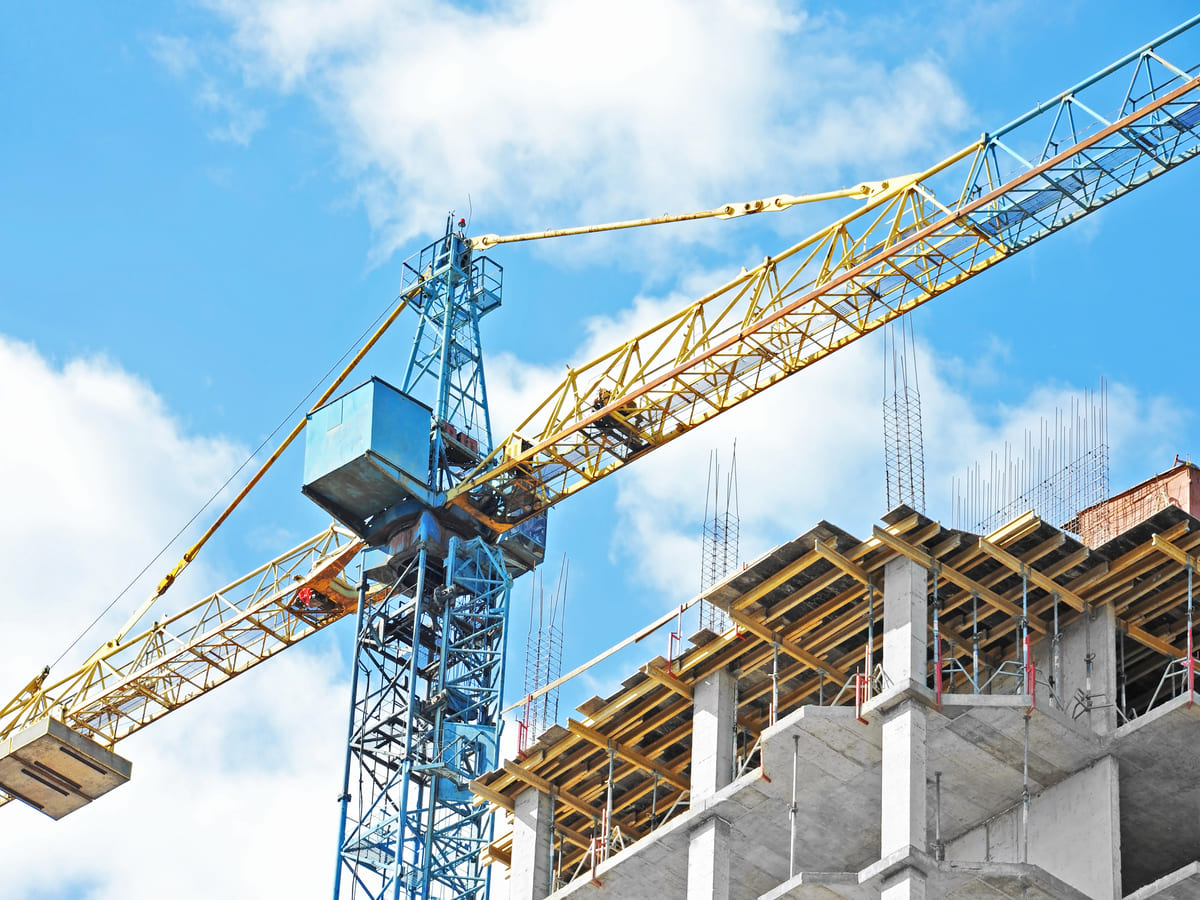More and more people are relocating to metropolitan areas in search of better living and employment opportunities. This has led to further expansion in the form of skyscrapers. As high-story buildings continue to increase, construction cranes have become a common sight on Florida’s horizon.
Unfortunately, crane accidents are among the deadliest in the construction industry. The Census of Fatal Occupational Injuries (CFOI) recorded 297 crane-related deaths between 2011 and 2017, an average of 42 deaths annually during this seven-year period. In this article, we’ll be discussing the causes of crane accidents, how to prevent them, and what to do if you’ve been involved in a crane operator injury in Boca Raton.
Common Causes of Crane Accidents
According to the Occupational Safety and Health Administration (OSHA), 93% of crane accidents are caused by human error. This means that although malfunctions do occur, most mishaps were not caused by faulty equipment. Equipment misuse, such as incorrect operation, faulty rigging, and disregarding standard operating protocols, is usually to blame. As such, crane operators must be extremely cautious and vigilant in all parts of their work.
The following are some of the reasons why crane accidents occur:
Electrical Hazards
Contact with electrical sources, such as power cables, is responsible for about half of all crane-related injuries and fatalities. Workers should inspect the road before use, identify obstacles, and ensure proper clearance from overhead wires and other hazards. Designated observers should be present for both the transportation and the operation of the crane to ensure adequate clearance. Electricity wires along the road should ideally be deactivated. Similarly, any nearby power cables or sources are subject to the same level of caution.
Overloading
Overloading or improper loading of the crane is another leading cause of accidents. In many cases, this results in the equipment tumbling or falling over. As a safety precaution, never load the crane over its maximum capacity. Instead, adhere to the lift’s prescribed guidelines.
Falling
During the construction of a bridge or other high-altitude project, workers may often employ crane baskets to help them work at great heights. There is a risk that the bucket will fall off the crane or that workers could tumble out if they lean over too far.
High Winds
Crane safety is heavily influenced by the weather. The max wind speeds allowed vary depending on the type and setup of the crane. On the other hand, low winds are always preferable for lifts since strong gusts can force cranes to crash or collapse. As a result, keep a close eye on the weather for any sudden changes.
Lack of Communication
Crane accidents are caused by a lack of effective communication. Everyone in the team must coordinate properly and perform their duties without misunderstanding. On the other hand, employers are responsible for ensuring that crane operators adhere to established protocols and do not get complacent with their work.
As the last point, crane operators need to be vigilant and act as a team, not on their own.
Crane Accident Injuries
Because of their size and the weight of the items they carry, crane accidents can be disastrous. Fatalities and significant injuries from crane accidents are common, including:
- Amputations
- Back injuries
- Crush injuries
- Electrocution
- Fractured bones
- Full or partial paralysis
- Internal injuries
- Spinal cord injuries
- Traumatic brain injuries
Operators injured in crane accidents experience pain and suffering, rising medical costs, and lost wages due to time off work. Injuries can sometimes keep them from returning to their jobs.
How to Prevent Crane Accidents
There is no quick fix for safety, but construction site managers and employees can work together to limit the number of crane accidents. For the safe operation of cranes, consider these recommendations:
- Use a suitable crane for the task.
- Train and license crane operators to handle specific cranes.
- Crane capacity standards should be followed.
- Check the equipment daily and follow all relevant operating procedures.
- Make sure the ground is stable, and the outriggers are properly set up.
- When equipment is no longer in use, follow the proper lock-out or tag-out procedures.
What To Do if You Sustain a Crane Operator Injury in Boca Raton
When a crane accident leaves you in need of medical treatment, you may pursue legal action for compensation. In that regard, knowing who is responsible for the accident is critical. Parties who may be held accountable include:
- Your employer: Your employer owes you a duty of care to keep you safe at work. Worker’s compensation or a lawsuit against your employer could be an option if they breach this duty (e.g., by not inspecting the crane) and you sustain an injury. If you get hurt while working, you may be entitled to workers’ compensation benefits.
- The manufacturer: If you were injured because of faulty equipment or machinery, you are eligible to file a lawsuit against the manufacturer. This is referred to as a product liability claim.
Accidents involving cranes can be complicated and daunting. It is not easy to establish who is legally accountable and to what degree. Without a doubt, you should seek the advice of a knowledgeable Florida crane injury lawyer before taking on this challenge.
Final Thoughts
Using cranes allows workers to accomplish tasks that would otherwise be impossible, making their jobs easier and more efficient. However, they are put in greater danger if adequate safety practices aren’t followed.
Getting hurt in an accident is the last thing anyone wants to think about. If you or a loved one has been involved in a Boca Raton crane operator accident, knowing where to start with the workers’ compensation claim process can be overwhelming. Let us handle the legal aspects of your case so that you can focus on your recovery. Our workers’ compensation attorneys are committed to ensuring that crane accident victims receive the compensation they deserve. Contact us today.
Sources:
- https://www.bls.gov/iif/oshwc/cfoi/cranes-2017.htm
- https://blog.smequipment.com/blog/common-causes-of-crane-accidents-and-how-to-prevent-them
- https://www.graphicproducts.com/articles/crane-accidents/
- https://commercialledlights.com/blog/crane-safety/osha-crane-accident-safety-regulations/

